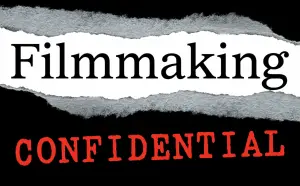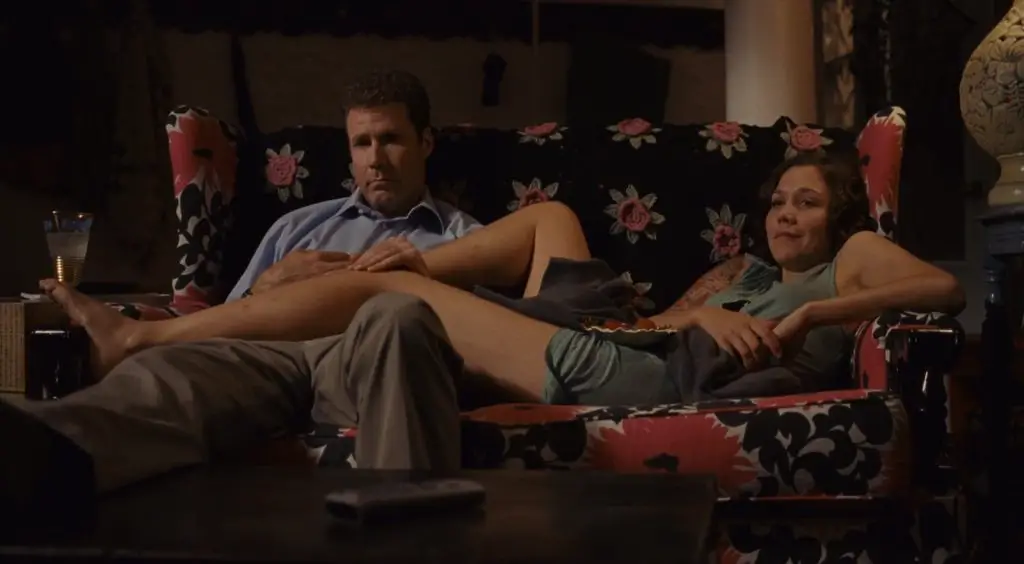
Since 1998, Steve Balderson has made 17 feature films. Looking back on these years of productivity, Steve has crafted a volume of invaluable perspective, tips, how-tos and general philosophy about making independent films, no matter the budget, no matter the location. Balderson worries little about who he will offend. Instead, he focuses his attention on what it takes to be a productive filmmaker in an industry that is risk averse and locked in a world where rigid process seems more important than creativity. This Kansas-born outsider has garnered awards, critical acclaim, and rave reviews globally, including one from Roger Ebert, who called him “Brilliant.” His film “Casserole Club” is in the U.S. Library of Congress permanent collection; “Firecracker” won numerous accolades in film festivals around the globe. And it goes on and on…These kudos notwithstanding, the real potency of this book is how Balderson’s beliefs about making films and working with people – whether they be Oscar winning actors and Grammy winning musicians, or the waitress “extra” in the restaurant – have been the fuel for this remarkable collection of successful motion pictures. Read it, and then go make your film! Enjoy this exclusive excerpt from Steve Balderson’s Filmmaking Confidential.
Chapter 11: MUSICIANS ARE FAMOUS, TOO!
The film business is one of the most illogical businesses in the world. Or, rather, the people who operate inside The Industry (executives, let’s say) make some of the most illogical decisions on a daily basis. I imagine if they were working in any other field of business, they would likely be fired and out of a job pretty quick.
And, well, actually, the turnover rate for Industry executives is steadily climbing. Remember your contact at that company? Yah, he only worked there for six months and then he was canned. Now he works at that other company. No, wait, that company folded, I heard he’s working as a Producer’s Rep now.
Anyway, when I’m casting a movie, I’ve found that sometimes it makes more sense to cast famous musicians in roles instead of famous actors.
Famous musicians have global followings and fans who buy whatever they churn out. I figure tapping into that marketplace makes sense if my purpose is to have exposure and sales. To get the movies I make out there and be seen by an audience. I do not make movies so they can sit on the shelves in a dark closet.
Did you know that a musician can have as many, and in some cases, even more fans than a famous actor? Famous actors are familiar with being in movies. When I’m putting together a guerrilla style shoot, the chances of attracting someone like George Clooney to that project is pretty slim. On the other hand, famous musicians aren’t approached to be in movies very often, so for them it’s a fun adventure.
Danny DeVito can attest that Mike Patton has as many fans as he does. Ask him! However, most Industry executives do not know who Mike Patton is. And, those who do know probably don’t think he has a fan base as big or larger than Danny DeVito. So, when you have a film starring Mike Patton, Industry executives will not be as interested as they would if your project starred Danny DeVito.
I learned that lesson when peddling my film Firecracker. I was just stunned by the film Industry’s total disregard for famous musicians. I was reminded by this again while peddling my film The Casserole Club, which stars “Backstreet Boy” Kevin Richardson in his film acting debut.
“The Backstreet Boys” are the best-selling boy band of all time. They’ve sold over 100 million albums. They have a global following that is larger than that of Mike Patton. Which means, Kevin Richardson has more fans than Danny DeVito and Mike Patton combined. That kind of following is the equivalent of having someone like George Clooney in the movie. The tens of millions of “Backstreet Boy” fans spend money to buy a movie just as easily as they do music.
“Filmmakers: think about why you’re making a movie. Do you want people to see it?”
Yet most film businesses cannot wrap their heads around this idea.
But that’s okay. You don’t particularly need anyone in the film business to help you market directly to a musician’s fan base. You can do it on your own.
Filmmakers: think about why you’re making a movie. Do you want people to see it? Are you only interested in working with famous actors? Have you thought about casting a famous musician? Did you know that there are famous musicians you’ve never heard of who have more fans than Brad Pitt?
Maybe one day the film Industry will recognize the music industry exists and take advantage of cross-market promotion. But until they figure it out, my advice is to take advantage of it, and be thankful they aren’t so you can reap the rewards!
Going back to my earlier point about the HollyApple Turnovers. I don’t mean traditional apple turnovers, which are tender and flaky, with apple pie-like filling and a thin, white glaze. Nor am I speaking about Gwenyth’s daughter. I’m speaking of the kinds that are just a bit flaky and work as executives at movie studios and production companies in Hollywood.
When I began my film career in the 1990s, I met a slew of awesome people who had great jobs with all the major studios. After now-disgraced producer Harvey Weinstein called me personally to express his interest in acquiring my film Pep Squad, I became friends with his assistant. Or, rather, his assistant du jour. That person was quickly replaced by another assistant, who, shortly after being hired, developed a crush on me. It was kind of bizarre. Of course I never met the guy in real life, but to be funny, I sent him an 8×10 glossy headshot of my face as a joke. He hung it up on the wall by his desk. And each time I called to visit with Harvey, the assistant thought I was calling to visit with him, not Harvey. It all became very confusing. But, just as soon as he was developing some long-distance feelings for me, he was axed as well. So, in came another assistant. By that point I’d sold my movie to another distributor, so I stopped calling. I’m not sure who his next assistant was. Probably someone who enabled Harvey’s now known infamous and repulsive behavior.
My mentor Eric Sherman always suggested it was a really good idea to network and make friends with executives at certain companies because at some point, they might be able to help me get a movie made, or whatever.
Besides the aforementioned assistant, I met some great people who were VPs of production, directors of acquisitions, and other higher-ups that, one would think, would be relatively great connections.
One incredible woman, Sara Rose, was an inspiration to me. After seeing my film at the Cannes Film Market, she came up to me afterwards to introduce herself. She told me to stop by and see her at MGM any time I was in LA. And I did. She always took my meetings and was always a delight to visit with. She then became Senior VP of Production at MGM/UA and we spoke many times about making my film Firecracker together. That didn’t happen, but we kept in touch and I always looked forward to working with her in the future.
While I was on track to develop these relationships (some of the people were awesome, like Sara Rose, but some of the other ones were the flaky kind and not so cool), a strange thing kept happening. They kept losing their jobs.
Some executives moved to other companies on their own free will, some were moved into different jobs within the same company (but not a job that had anything to do with why I was talking to them), and then there were some who were fired and never seen or heard from again.
After several years it became clear to me that most movie executives can’t keep a job for more than about two years. This Turnover Syndrome is a bizarre fact about the movie business. Even Penny Marshall mentioned this phenomenon in her memoirs. If there is someone working with you on your movie when you start the process, they won’t be working at the studio when you finish the movie. Just as simple as that.
My question is: why? Why can’t most movie executives keep a job for more than a couple years?
Pick up Steve Balderson’s Filmmaking Confidential now on Amazon.


